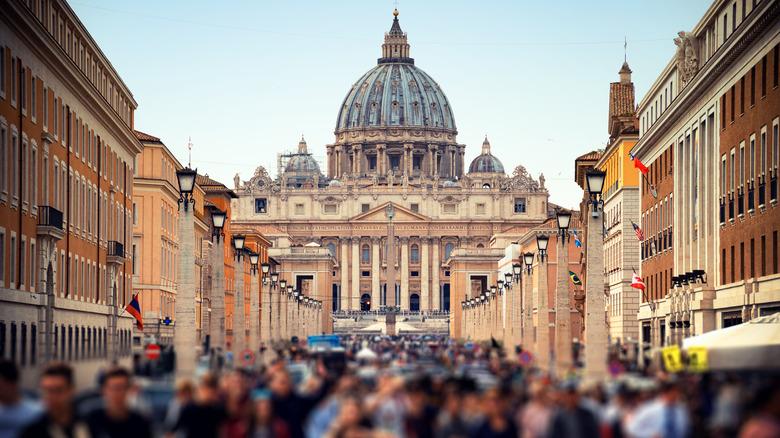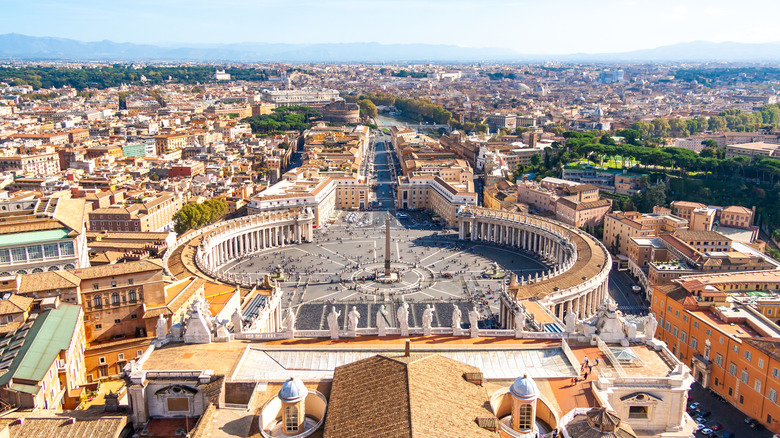What Really Happens If You Are Arrested In The Vatican
Vatican City State, the collection of buildings and the things contained within them that make up the headquarters of the Catholic Church, has, for nearly a century, been its own country. Its creation was the result of a 1929 treaty designed to preserve the balance of power between the Church and the Italian government, and to keep each out of the other's business, according to Vatican Tips. Despite literally being surrounded on all sides by the city of Rome, Vatican City State is recognized as a nation in much the same way that Mexico or Poland are today, with its own army, head of state, and post office.
As it turns out, however, Vatican City also has a pretty major crime problem. In fact, when the number of crimes committed in the city is compared to the small number of official citizens of the country (about 900), Vatican City has one of the worst crime rates in the world, according to Oyster. Most of those are comparatively minor crimes of opportunity, such as purse-snatching, but there's been at least one pretty major felony committed within the country. That crimes are committed within the walls of Vatican City is actually problematic for the country, considering that it has no prison and only one judge. There are, however, detention cells, located within the headquarters of the Vatican Police, as the BBC explained.
If you commit a crime in the Vatican, you'll likely face justice in Italy
As a major tourist attraction in a major European city, St. Peter's Square and other publicly-accessible spots within Vatican City can generally be counted on to be chock-a-block with tourists (putting aside, for the moment, the COVID-19 pandemic). That makes the place fertile ground for pickpockets, purse-snatchers, and the like, according to Oyster.
So what happens if someone commits a crime within the tiny country? Long story short, says The Fact File, is that the criminal will likely get away with it, if it's a trivial property crime, considering the limitations of the country's legal system. Those who do get convicted in a Vatican court will likely serve their jail time in Italy, which is right across the street, in the most literal sense. One exception was Pope Benedict XVI's former butler, who was convicted of theft of documents and sentenced to 18 months in Vatican City's detention cells in 2012, reports the BBC. He was released to house arrest after two months, says The New York Times.
In late July, one of the largest criminal trials in Vatican City's history began. Cardinal Angelo Bachu is one of the defendants, accused of misusing some $400 million in Vatican funds. The trial has been adjourned; it's scheduled to resume October 5, says NPR.

